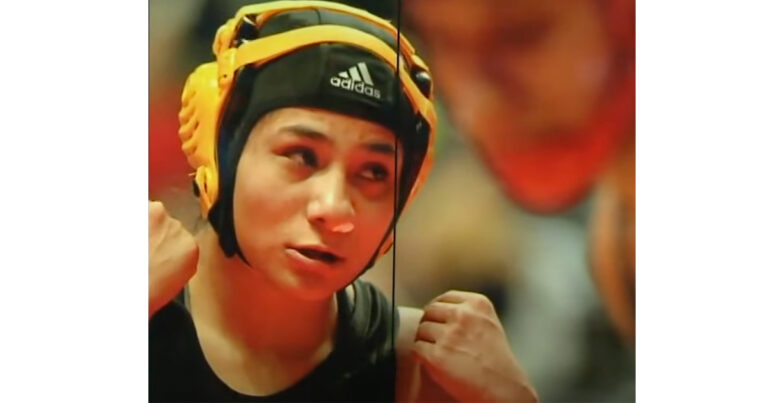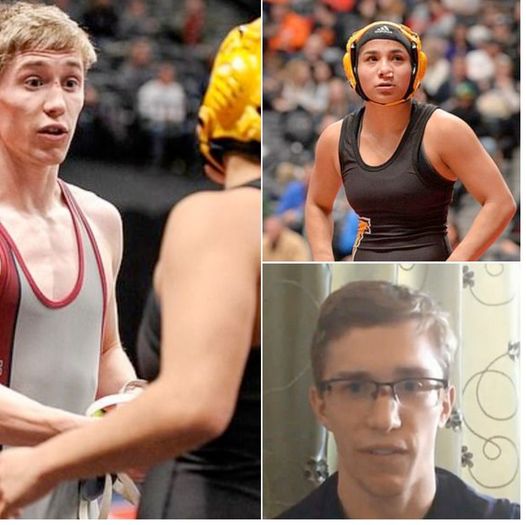In the world of high school sports, every athlete’s journey is unique, filled with challenges and personal decisions. For Brendan Johnston, a high school wrestler from Colorado, his journey made headlines in 2018 for a reason that goes beyond winning or losing a match.
Brendan, a senior at the Classical Academy in Colorado Springs, faced a choice during the state wrestling tournament that year. He was matched against two female wrestlers – Jaslynn Gallegos from Skyview High and Angel Rios from Valley High. But Brendan made a surprising decision: he chose not to wrestle them, resulting in forfeiting two important matches.

Why did he make this choice? Brendan, who is Christian, explained that his faith and personal beliefs played a major role. He mentioned feeling uncomfortable with the close physical contact and aggressive nature of the sport when competing against a female opponent. Brendan emphasized that his decision was not about seeing women as less capable, but about respecting differences between men and women, a perspective shaped by his faith and upbringing.
This decision meant that Brendan ended his high school wrestling career by placing sixth in the tournament, while Jaslynn and Angel ranked higher at fourth and fifth respectively. His choice sparked conversations about the fairness and dynamics of male versus female competition in sports. Many people think that men and women should not compete against each other in certain sports due to physical differences.
Jaslynn, one of the female wrestlers, expressed a mix of respect for Brendan’s choice and disappointment. She has been wrestling to show that gender shouldn’t define an athlete, emphasizing that she wants to be recognized simply as a wrestler, not just a “girl wrestler.”

Brendan’s story is more than just about a wrestling match. It’s about the choices athletes make, the beliefs they stand by, and the broader conversation about gender in sports. His decision raises important questions: How should sports handle gender differences? What does it mean to compete fairly?
What are your thoughts on Brendan’s decision? Is it a matter of respecting personal beliefs, or does it highlight a need for more inclusive sports policies? Share your views and continue the conversation.
And if you found this story intriguing, don’t forget to explore more such stories that challenge norms and provoke thought.
